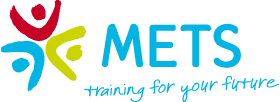In light of recent events and media coverage concerning the Early Childhood Education and Care (ECEC) sector, we want to take this moment to share our reflections and reaffirm our commitment to quality and advocacy.
Supporting all educators means creating safe, respectful environments not only for children, but for staff as well. This includes strengthening safeguarding practices, offering clear and consistent guidance, and ensuring every educator feels equipped and supported in their role. Encouraging open conversations, fostering team trust, and providing access to professional and emotional support can make a meaningful difference. It’s through these collective efforts that we can help educators continue their work with confidence and care, while also upholding the highest standards of safety and accountability.
What are METS doing to support the protection of our children?
At METS Training Services, the safety and wellbeing of children is a fundamental priority. We are committed to creating and maintaining a child-safe environment where all children feel respected, valued, and protected. In line with this commitment, we are actively implementing the following changes to our policies and procedures that align with child safety and best practices. This includes:
- you are no longer required to submit photos and/or videos of children with your assessments, we will be going through all assessment tasks to remove this.
- All trainers and assessors will ensure that all personal devices are not to be taken into the classrooms
- All trainers and assessors will ask centre management for permission to take their laptops on the floor for education/ study purposes only on arrival to the centre
- Trainers WWCC number will be included in the Induction of all new enrolments and will be emailed to you for your records.
Changes to the National Quality Framework
In response to this incident and the broader call for strengthened protections in Early Childhood Education, important changes are being made to the National Quality Framework (NQF). These reforms aim to enhance child safety through clearer regulatory guidance, stronger compliance processes, and more consistent national oversight. (please see the attached documents)
What the changes relate to
• Policies and procedures for the safe use of digital technologies and online environments.
• Notification timeframes for physical and sexual abuse.
• Prohibiting the use of vaping substances and devices.
• Refinements to NQS Quality Areas 2 and 7.
When the changes start
Changes to the Education and Care Services National Regulations will commence on 1 September 2025.
Refinements to the NQS will commence on 1 January 2026.
Educators and providers are encouraged to stay informed about these updates to ensure their practices align with the evolving standards.
Upcoming webinars
In response, Early Childhood Australia has formed a Rapid Response Taskforce. ECA is dedicated to supporting early childhood professionals who work with children and their families. This work includes our upcoming live webinar,
- Children’s Safety and Safeguarding in Early Childhood Settings.
The conversation will be facilitated by ECA CEO, Sam Page, and Catharine Hydon, Director, Hydon Consulting. Sam and Catharine will be joined in conversation by a panel of experts in child sexual abuse prevention, child safety and safeguarding. Please see the recording link if you missed it on Tuesday the 15th July.
Content Disclaimer:
This webinar recording includes discussions on topics related to child sexual abuse prevention, child safety, and safeguarding. Some viewers may find this content distressing. Please consider your own mental health as you watch this recording and, in the days, to come.
Further resources:
- Ramesh Shrestha | LinkedIn. He is the founder of Thriving Educators Aspiring Male Professionals
- NQF Child Safe Culture Guide | ACECQA
- Child Safe Standards in Family Day Care Refresher: April 2025 – NSWFDCA Fee PD with an FDC lens but also valuable for centre-based service teams and students
- Landing page | Our resources | Office of the Children’s Guardian
- What is Grooming? | Bravehearts
- The ECA Code of Ethics provides useful guidance on the obligations of early childhood professionals to act in ways that:
- promote the best interests of all children
- build a spirit of collegiality and professionalism through collaborative relationships
- advocate for the early childhood profession and the provision of quality education and care.
Wellbeing support resources
